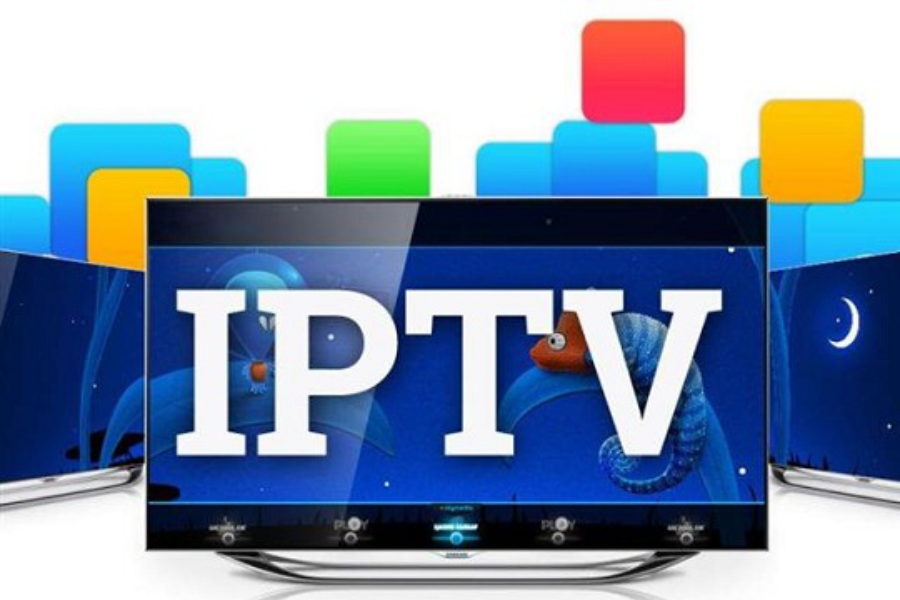In the ever-evolving landscape of digital entertainment, Internet Protocol Television (IPTV) has emerged as a game-changer. This innovative technology leverages the power of the internet to deliver television content, providing an alternative to traditional cable and satellite TV services. Let’s delve into what IPTV is, its benefits, types, and the future it holds.
EVDTV IPTV, a leading IPTV server offering encrypted and open channel subscriptions. The website’s content is in Arabic, targeting a global audience with a focus on Arabic-speaking regions
What is IPTV?
IPTV stands for Internet Protocol Television, a service that delivers TV programs and videos through the internet. Unlike traditional broadcasting methods that use cable or satellite, IPTV transmits content over IP networks, which are the same networks used for the internet and other computer-based communications.
How IPTV Works
IPTV uses a client-server model where the content is delivered to the end-user via a service provider’s server. It involves three main components:
1. Content Provider: Supplies the channels and shows.
2. Service Provider: Distributes the content to users.
3. End User: Receives the content through a compatible device like a smart TV, set-top box, computer, or mobile device.
The content is transmitted in small data packets, similar to how websites and other internet-based services operate. This allows for features like on-demand content and live streaming.
Benefits of IPTV
IPTV offers several advantages over traditional TV services, making it increasingly popular among consumers.
Flexibility and Variety
One of the primary benefits of IPTV is the flexibility it offers. Users can watch their favorite shows on various devices, including smartphones, tablets, and computers, in addition to their TVs. This multi-device support allows for a more personalized viewing experience, accommodating the modern, on-the-go lifestyle.
On-Demand Content
IPTV excels in providing on-demand content. Users can access a vast library of movies, TV shows, and other video content whenever they want, eliminating the need to adhere to fixed broadcasting schedules. This feature alone has significantly enhanced the viewing experience, offering convenience and control to the audience.
Interactive Features
IPTV services often include interactive features such as pause, rewind, and fast forward. Additionally, many IPTV providers offer additional functionalities like video recording, social media integration, and gaming options, enhancing the overall entertainment package.
Cost-Effective
Compared to traditional cable and satellite services, IPTV can be more cost-effective. Many IPTV providers offer various subscription plans, including pay-per-view and monthly packages, giving consumers the flexibility to choose what best suits their needs and budget.
Types of IPTV Services
IPTV services can be broadly categorized into three types:
Live Television
Live TV IPTV allows users to watch television broadcasts in real-time, similar to traditional TV services. This includes live news, sports, and entertainment channels. Some services also offer catch-up TV, enabling users to watch previously aired shows.
Video on Demand (VOD)
VOD services let users select and watch video content whenever they choose, rather than waiting for a broadcast schedule. This includes a wide range of content such as movies, TV series, documentaries, and more.
Time-Shifted Media
Time-shifted media, or catch-up TV, allows users to watch live broadcasts later. This service is useful for those who want to view content that was aired earlier, making it convenient for users with busy schedules.
Future of IPTV
The future of IPTV looks promising, driven by continuous technological advancements and changing consumer preferences. Here are a few trends that are likely to shape the future of IPTV:
Integration with Smart Home Devices
As smart homes become more prevalent, IPTV services are likely to integrate more seamlessly with other smart devices. This could include voice control through virtual assistants like Amazon Alexa and Google Assistant, as well as integration with smart home automation systems.
Enhanced User Experience
Advancements in artificial intelligence and machine learning are expected to enhance the user experience. Personalized content recommendations, advanced search capabilities, and improved user interfaces will make IPTV services more intuitive and user-friendly.
5G and Improved Connectivity
The rollout of 5G technology will significantly enhance IPTV services by providing faster and more reliable internet connections. This will allow for higher quality streaming, reduced latency, and a more immersive viewing experience.
Expansion of Content Libraries
IPTV providers are likely to expand their content libraries to include more diverse and exclusive content. This will cater to a broader audience, offering niche content and localized programming to meet the demands of global viewers.
Conclusion
IPTV has revolutionized the way we consume television content, offering unparalleled flexibility, variety, and convenience. As technology continues to evolve, IPTV is set to become an even more integral part of our digital lives. Whether you’re a casual viewer or a dedicated binge-watcher, IPTV services provide a compelling alternative to traditional TV, paving the way for the future of television.




